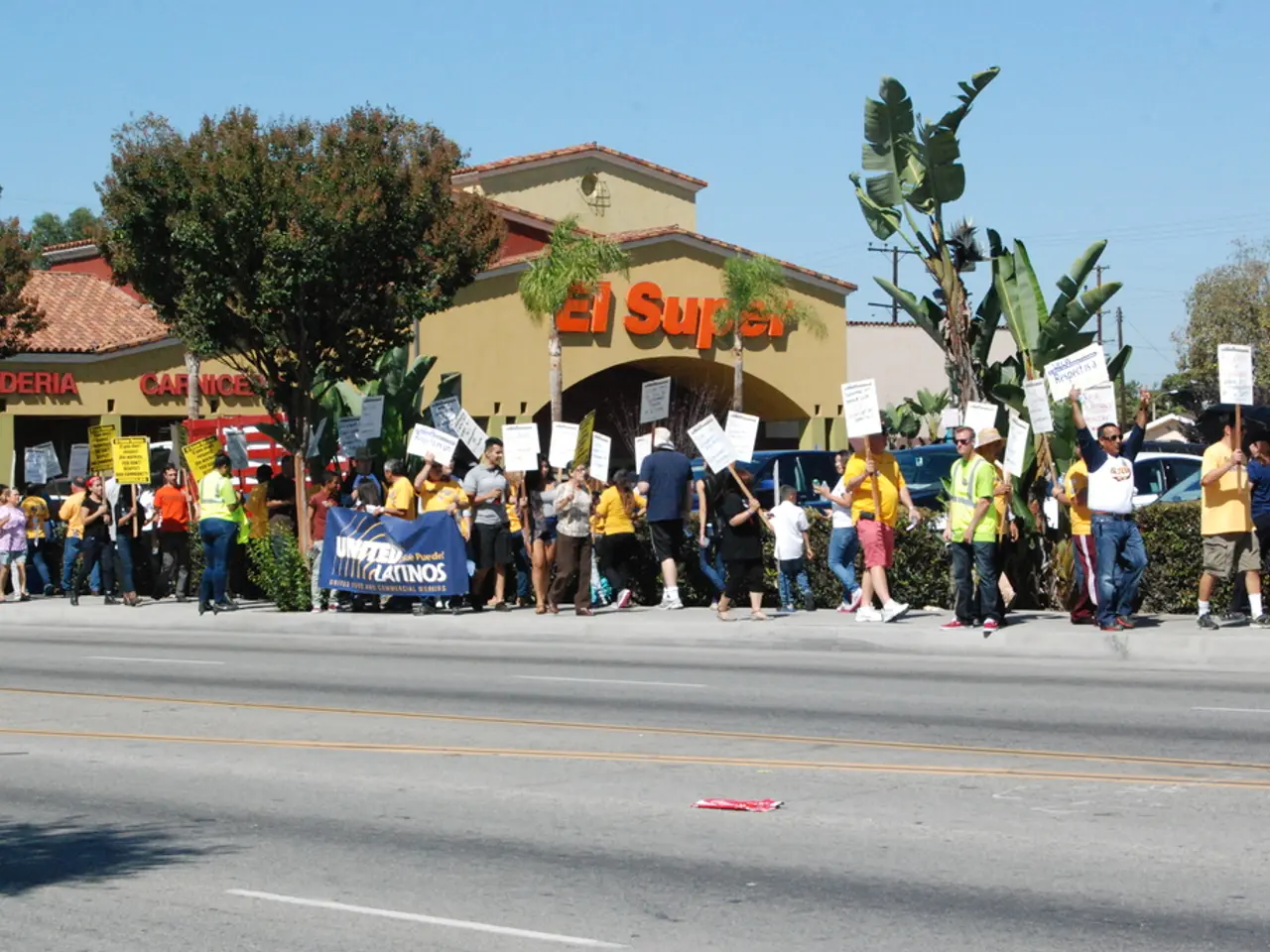Lowering the voting age in Britain to 16, an attempt to enhance democratic representation
In a significant move towards increasing youth engagement in U.K. democracy, the government has announced plans to lower the voting age for national elections to 16. This decision follows the Labour Party's pledge to lower the voting age, made before their election in July 2024.
The changes, which are estimated to be the biggest reform to the U.K.'s electoral system since 1969, aim to break down barriers to participation and boost engagement. However, the move has sparked debate among political analysts about its potential impact on youth engagement.
Stuart Fox, a politics lecturer at the University of Exeter, questioned whether lowering the voting age actually increases youth engagement. He suggested that beefing up the citizenship curriculum or expanding the provision of volunteering programs in schools could be more effective at getting young people to vote.
The changes will see Britain join countries like Austria, Brazil, and Ecuador, which already allow 16-year-olds to vote. Austria was the first European country to lower its voting age to 16 in 2007, and Ecuador followed suit in 2008. Brazil, on the other hand, lowered its voting age to 16 in 2015 but only for certain elections, and it remains mandatory for those aged 18 to 70 to vote.
While the changes are being hailed as a step towards a more inclusive democracy, they do not include any mention of allowing voters to use bank cards as a form of identification at polling stations, as previously announced. The government's plans to introduce automatic voter registration and allow voters to use bank cards as a form of identification at polling stations are still under consideration.
In addition to the changes in voting age, the government is also tightening campaign financing rules to prevent shell companies with unclear ownership from donating to political parties. This move is aimed at strengthening safeguards against foreign interference in British politics, as stated by Democracy Minister Rushanara Ali.
However, the changes do not mention any tougher sentences on people convicted of intimidating candidates, as previously announced. The government has clarified that tougher sentences will be imposed on people convicted of intimidating candidates, although the specific details are yet to be disclosed.
The previous Conservative government introduced a requirement for voters to show photo identification in 2022, a measure that critics argue could disenfranchise young, poor, and ethnic minority voters. The government's plans to address this issue are still under discussion.
The changes to lower the voting age will take place before the next national election, which must be held by 2029. The turnout in the 2024 election was 59.7%, the lowest level in more than two decades, and approximately 750,000 people did not vote due to lack of ID. The government hopes that lowering the voting age will encourage more young people to participate in the democratic process.
The changes to the voting age are subject to approval by Parliament, and further details about the implementation are expected to be announced in the coming months.
The government's plans to lower the voting age for national elections to 16 is part of a larger policy-and-legislation shift, given the Labour Party's previous pledge to do so. This move, a significant reform since 1969, falls under the umbrella of general-news, sparking debate among political analysts about its potential impact on youth engagement.
Among those questioning the efficacy of lowering the voting age are experts like Stuart Fox, a politics lecturer at the University of Exeter, who suggests alternative measures like beefing up the citizenship curriculum or expanding volunteering programs in schools might be more effective atgetting young people to vote.








